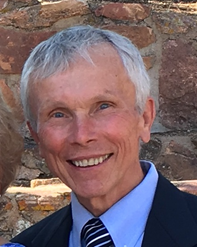2019 Opening General Session
Dr. David Dyjack
Executive Vice President, National Environmental Health Association
David T. Dyjack, Dr.PH, CIH was named NEHA's executive director and chief executive officer in 2015. Dyjack’s 30-year career includes expertise in environmental health, emergency preparedness and response, public health informatics, infectious disease, workforce development, governmental infrastructure, maternal and child health, health equity, and chronic disease. A board-certified industrial hygienist, Dyjack also has advanced degrees in public health with a doctorate from the University of Michigan and a master’s degree from the University of Utah.
He most recently served as the associate executive director for programs at the National Association of County and City Health Officials managing the organization’s grant and contract portfolio and 75 health professionals in support of the nation’s 2800 local health departments. Dyjack has a wealth of management and leadership experience ranging from local health departments to federal agency collaboration.
Dr. Robert Siegrist
 Professor Emeritus of Environmental Science and Engineering, Colorado School of Mines
Professor Emeritus of Environmental Science and Engineering, Colorado School of Mines
Robert L. Siegrist, PhD, PE, BCEE is University Professor Emeritus of Environmental Science and Engineering at the Colorado School of Mines and also a Professor of Civil and Environmental Engineering. He is the former Director of the Environmental Science and Engineering Division at CSM and founding Director of the Small Flows Program. Before joining CSM in 1995, Prof. Siegrist held academic and research positions with the University of Wisconsin, Norwegian Institute for Georesources and Pollution Research, Ayres Associates Inc., and Oak Ridge National Laboratory. He earned his BS (High Honors) and MS in Civil Engineering and his PhD in Environmental Engineering at the University of Wisconsin where he conducted research within the Small Scale Waste Management Project. Prof. Siegrist is an internationally recognized expert in decentralized water reclamation and in situ remediation of contaminated land. During his 40-year career he has published over 300 technical papers and 3 books and was awarded 2 patents. His new textbook, Decentralized Water Reclamation Engineering, was just published by Springer (www.springer.com/us/book/9783319404714). He has given invited keynote lectures at more than 100 workshops and conferences in more than 30 countries worldwide. He has also served as a science and engineering advisor to private and government agencies and organizations in the United States and abroad and has been a Fellow with the NATO Committee for Challenges to Modern Society
Tracy Hammond
Senior Policy Advisor, Polsinelli, LLC
Tracy Hammond is a member of the firm's National Public Policy group and assists clients interested in shaping energy, environmental, and infrastructure legislation and regulation.He serves as NOWRA's primary lobbyist on Capitol Hill. Tracy has spent over 15 years representing clients before Congress and many executive branch agencies. Tracy entered politics, serving as an aide to the Minority Floor Leader of the Missouri General Assembly in Jefferson City. Upon arriving to Washington, D.C., he began working for the Campaign Media Analysis Group (CMAG) where he serviced both electoral and issue advocacy campaigns by providing analysis on political media activity. Prior to joining Polsinelli, Tracy served as Vice President at Dutko, advising clients with the firm’s Energy, Environment and Sustainability practice.
Martha Shimkin
Acting Deputy Director, EPA Office of Wastewater
Ms. Shimkin will provide an update on the status of EPA’s implementation of the NOWRA Act, which includes requirements that EPA establish a Technology Clearinghouse on decentralized technology, to disseminate that information to key stakeholders, and to report to Congress on steps it is taking to support decentralized wastewater treatment.
Edna Primrose
Assistant Administrator, USDA Rural Utilities Service
Ms. Primrose, who runs USDA’s Rural Utilities Service, will discuss opportunities to obtain funding for onsite and decentralized wastewater treatment. In particular, the representative will discuss the process for obtaining the funding for individual onsite wastewater treatment systems which was authorized in the 2018 Farm Bill. The legislation authorized up to $20 million in loans and grants each year for the next five years to replace failing individual onsite systems owned by rural homeowners with very low income.
